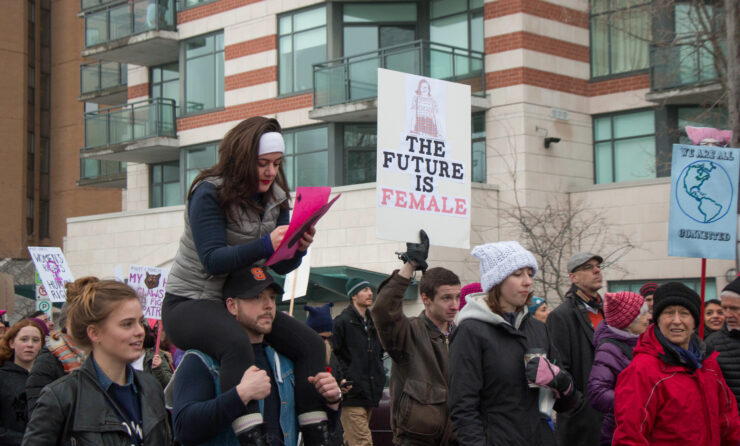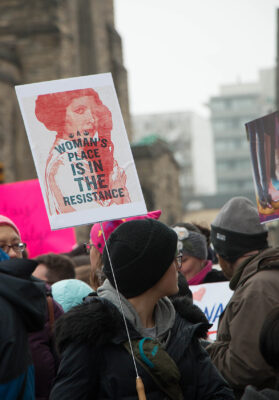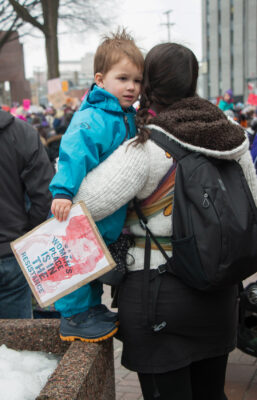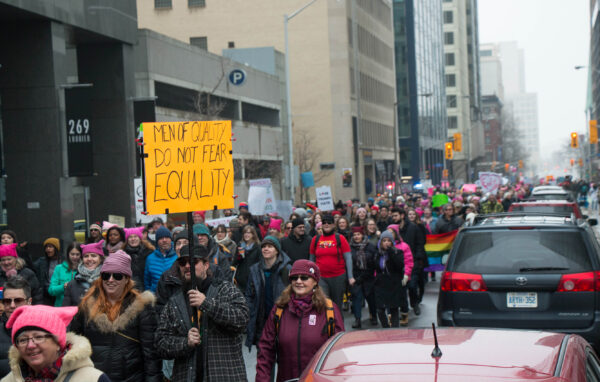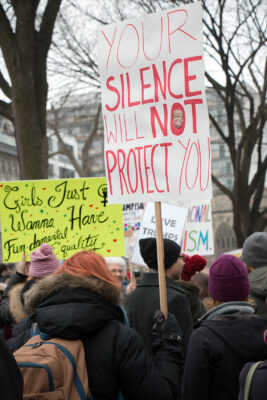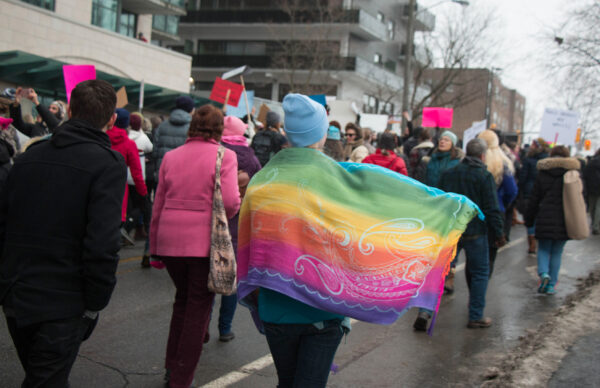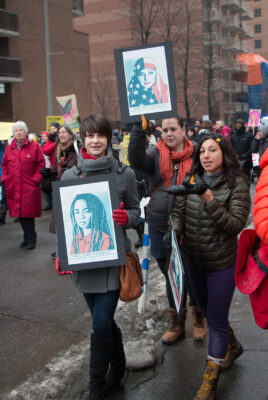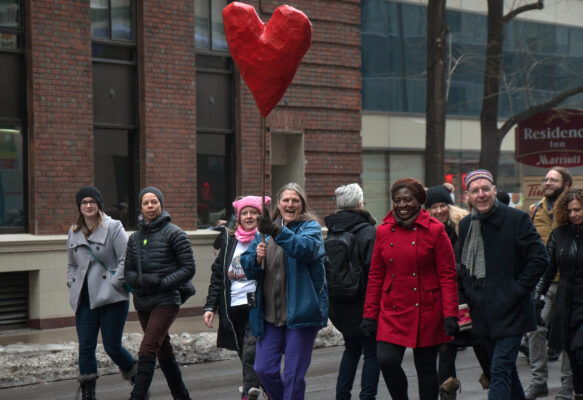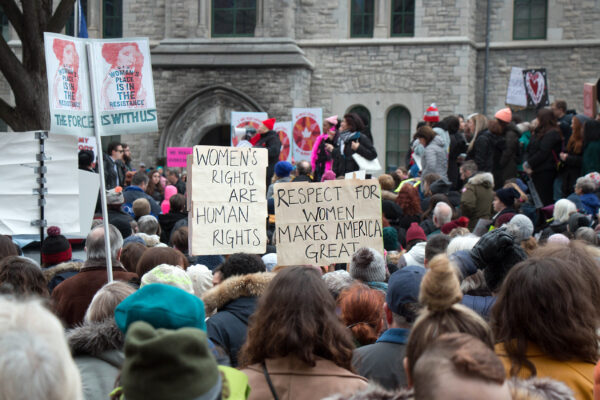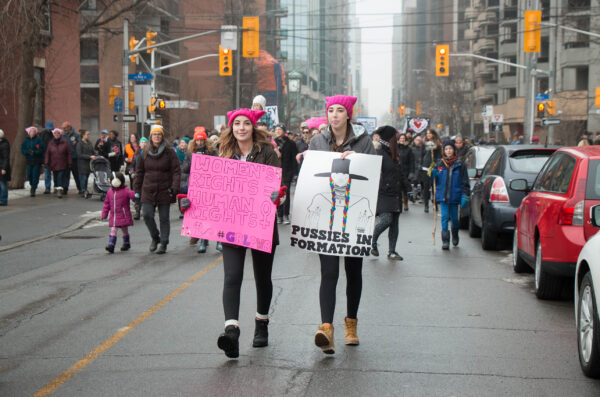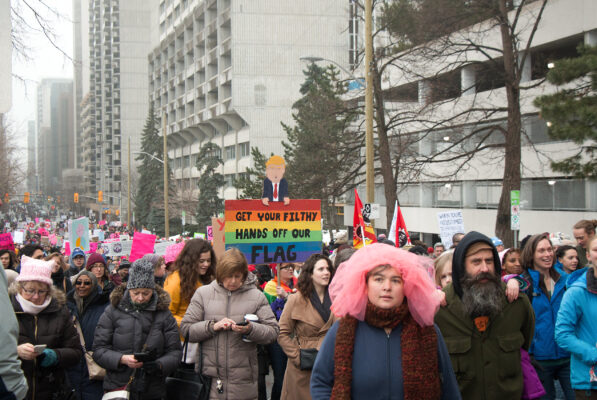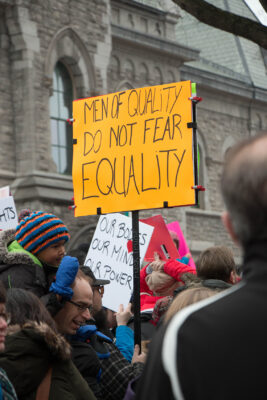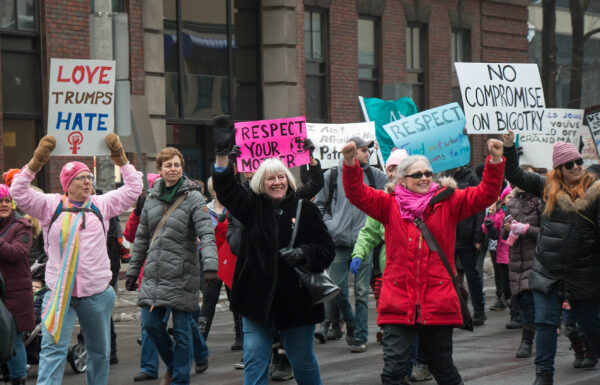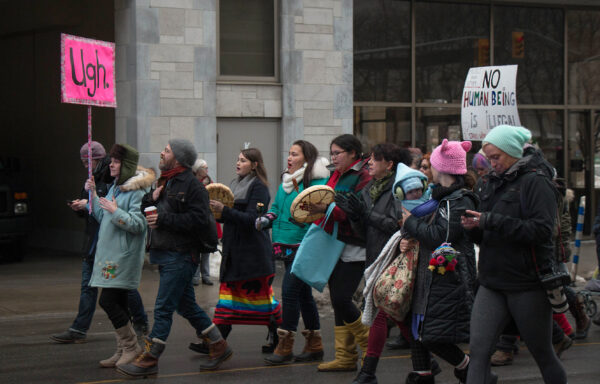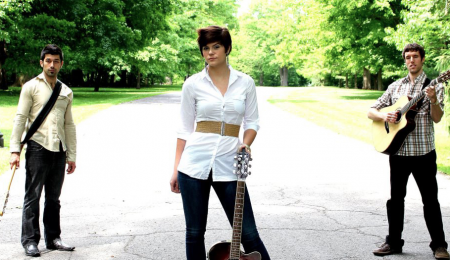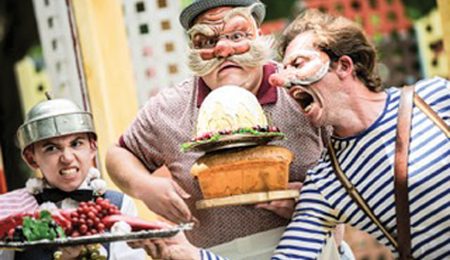Event garners crowd of up to 8,000 in solidarity with American women
On Friday, Jan. 21, up to 8,000 women and men marched in Ottawa in solidarity with the Women’s March on Washington.
Although the event started at the Human Rights Monument on Laurier Avenue, things started to pick up when the crowd reached the Bronson Centre, where they were met with several performances emanating the theme of rights for women, minorities, and the LGBTQ+ community.
The performances at the Bronson Centre kicked off with the Raging Grannies, a group of senior women who support the environment, anti-racism, human rights, and peace. They have been actively protesting since 1986, and use amusing songs and dance in order to convey their important messages.
“We feel very, very strongly that this is a time when democracy is threatened,” said Jo Wood, a member of the Raging Grannies. “When a lot of our cherished values up here in Canada may be eroded in order to keep the U.S. government trading with us.” .
The movement was reflected in the group’s music as they toted a message of empowerment for women across the border. Made up of 14 members, the Raging Grannies took to the stage to sing their lyrics to the tune of “If you’re happy and you know it,” in a sort of protest jingle.
“We can’t be grabbed or thumped, and we surely can’t be trumped, not even by a person Presidential,” was just one of many catchy rhymes included in the song.
“I’m not prepared to give up human rights just to appease a guy like Trump,” said Wood, echoing the general sentiment of the entire event.
The event also featured spoken word artists and musicians, and ended with a Hoop Dance by First Nations performer Theland Kicknosway.
“The march in itself just became a movement,” explained Kristine St-Pierre, a musician and organizer of the event. “For us in Canada, we’re not immune to what’s happening. There are a lot of consequences in terms of what’s going on in the States, but there’s also a lot of sexism and racism here in Canada.”
St-Pierre also charged the current Liberal government with having an active role in human rights in Canada, and highlighted the importance of listening to concerns voiced by grassroots social movements.
“There’s a lot of things that civil society and women’s rights organizations have been pushing in the last few years in terms of Indigenous women and gender equality in general.”
Along with performance art pieces, the event also featured speakers such as trans rights activist Zoe Knox, who wanted to make sure that the trans community was well-represented at the march.
“It’s good here in Canada for a lot of people,” Knox explained, sharing her experience with the crowd. “But it’s also really not good for a lot of people, and we wanted to call that out and draw attention to some of the areas that we still need to work hard on here in this country.”
“It only takes one stroke of a pen, one vote, for that to change,” Amanda Jetté Knox, a blogger and activist, summarized.
The march ended off on a political note, with the speakers bringing the spotlight back to the main focus of the event.
“I think that Canada needs to stand strong,” said Jetté Knox. “Right now, we are closer to what freedom looks like.”

